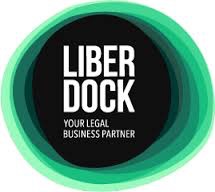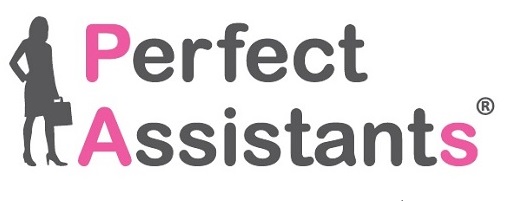Science needs diverse minds, Karin Hilton, Elsevier
Karin Hilton is female and in tech. She believes you need inclusion for diversity to flourish. You want to make sure that all those great people who just joined your team don't walk out the revolving door because they are not feeling included.
TEKST: Sabine van Egeraat - 07/04/2020
We find ourselves in hectic and unprecedented times at the moment. The first priority is everybody's health. In line with the current Corona restrictions, I had to plan the B-Elle interviews online. Thankfully, the woman featuring in this article, knows all about online meetings. Her name is Karin Hilton, senior director technology at Elsevier. She works with teams all over the world and for them, online meetings is the normal. I am honoured to interview Karin and share her thoughts and insights. First of all because of the person she is, and secondly, because she features the Inspiring Fifty list of 2019. Inspiring Fifty is a non-profit that aims to increase diversity in tech by making female role models in tech more visible. So you can see where my enthusiasm is coming from.
Elsevier is all about empowering knowledge. Growing from their roots in publishing, Elsevier helps institutions and professionals advance healthcare, supports open science and helps researchers for the benefit of humanity. Combining content with technology, supported by operational efficiency, they turn information into actionable knowledge. Elsevier empowers knowledge which empowers those who use it.
Starting our interview, one of my first questions is always: How did you start your day? Karin has a very active family household. Besides her husband and son, the family consists of 2 dogs, 3 cats and an uncounted yet large number of fish. Before starting her breakfast, all the family are fed first. Of course, much to their delight.
Karin shares
Karin shares with us her personal vision on diversity & inclusion. "I'm female and in tech so I'm really passionate about diversity and inclusion. At Elsevier, we actually reversed the order of focus, with my colleague Adam Travis called 'Global Head of Inclusion and Diversity'. I believe you need inclusion for diversity to flourish. You want to make sure that all those great people who just joined your team don't walk out the revolving door because they are not feeling included. When you are committed to tap into the power of a diverse workforce, you need openness and acceptance. I'm also passionate about focus on it because I personally see that diversity has not 'naturally' occurred. When I graduated from university early nineties, the overall perception was that we had equality: women are included and the workforce will rebalance. But now, quite some years further, that change still has a way to go."
When you are committed to tap into the power of a diverse workforce, you need openness and acceptance.
Elsevier's focus on I & D is both internal and external.
Our internal ERGs are very active: we are represented at pride events worldwide, we have multiple groups focussed on various communities e.g. Elsevier Enabled, African American Network, Young Elsevier, Women in Tech, Diversity in Tech, RELX Cares to name just a few. We are all deeply engaged in inclusion and diversity and very committed to drive change. It is both bottom up and top down.
I love that we pick up on and act on out of the box thinking because that energises inclusion even more. One of our staff questioned why we focus on graduates for our fast track IT recruitment programme - you don't have to be a graduate to be good in IT. This has made us re-evaluate and we are now exploring organizations that bring people into IT through other routes than academia to help us source new talent. Uptake of ideas like this makes people feel engaged to raise ideas and ask questions because they know the issues will respectfully be discussed.
Externally, Elsevier publishes the Gender Report that looks at diversity in the world of Research. It helps research organisations and the world of science to understand the challenges they too are faced with. Making the data visible is the first step in the journey to change. If you don't know where you're starting from, it is very hard to get that motor running and to get the passion engaged which is needed to move you forward. When you can't see where you are making progress, it can be difficult to keep the momentum going. A significant action we have taken is launching an Inclusion & Diversity Advisory Board, to improving gender balance in academic research globally. "
Karin believes the biggest contribution to change is visibility: make the data available and show the change over time. An example of making data publicly visible is the UK Gender Pay Gap reporting. It has created a demand across all industries for change that whilst that demand was always present, is now undeniable. Given the legal constraints around personal data, it is not always easy to do but organisations who have a will to do so will find a way and this will power their momentum. The UK Gender Pay gap reporting is one of the ways through which Elsevier measures progress and they are seeing a gradual improvement year on year since 2017.
Karin also sees a case for legislation about supporting diversity. In countries where there is legislation in place in terms of the numbers of females in boards, significant headway is being made. When change is inevitable, people and companies are very innovative in finding ways to propel change the best way.
It is also important to focus on support in the 'now': there is a lot of research showing the challenges women and diverse groups face in the workplace. "Supporting individuals to navigate the current workforce would be a great help", adds Karin. "Show them the hoops and hurdles so they are not taken by surprise." Karin once worked with someone that had a very different working style than she did, however, it was exactly this person that handed her wonderful advice: 'It is great that you want the world to change, but let's be very pragmatic about this. It is fantastic to envision a perfect world, but perfect doesn't exist. If you really want to make a difference to the people who you are working with right now, it would be useful to teach them the shortcuts to make this environment work for them.'
Supporting individuals to navigate the current workforce would be a great help.
"I find inspiration in how one person's action can make a difference. Deborah Logan, Publishing Director for Energy and Earth, attended an energy conference where around 25% of the delegates were women, and then went to the journal reception for 80 editors and found herself to be the only woman in the room. In Deborah's words, "Sometimes it's only when the contrast is so stark, as it was at that reception, that you start to ask yourself: what am I really seeing here, right in front of my eyes, and what am I going to do about it?".
What she did was to guide editors and publishers of energy journals to become agents for positive change. Using data, she revealed that not one of our 100 energy and earth journals at that time mirrored the gender diversity of its author base. In fact, only 6% of editors and editorial board members were women across all energy journals – whereas women make up 21% of researchers in that field. Since then, we have been able to grow the numbers of decision-making women editors on these journals to around 17%, and to around 24% on the flagship energy journals, with a stated commitment to 30% in the next 2 years and 50% by 2025."
Food is one of the easiest things to unite people. As Karin adds: "Because of my global family background, my food taste is so diverse and I live to eat, not eat to live! I love the tapas style of eating. Not limited to the Mediterranean food plate, but always with family and friends together."
The book that Karin is recommending is Riding the Waves of Culture by Fons Trompenaars. One of the crucial elements of inclusion is being able to understand yourself and how you react. "I am married to a Dutch man and I live in the Netherlands. It's so near to the UK, it's easy to assume cultural similarity – yet the culture is very different. Fons helps you understand the different expectations people have in their own heads of how others react or behave. And how each of us applies that lens to the actions of others. Be aware of the invisible veil that we all have."
Karin, it is an honour to interview you and add you to our list of women who make a change. Thank you for your insights in Diversity & Inclusion!





